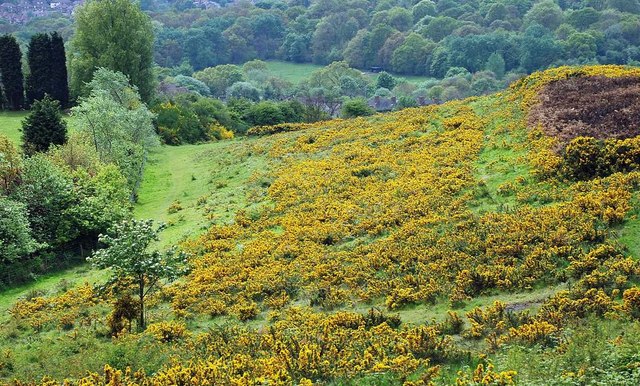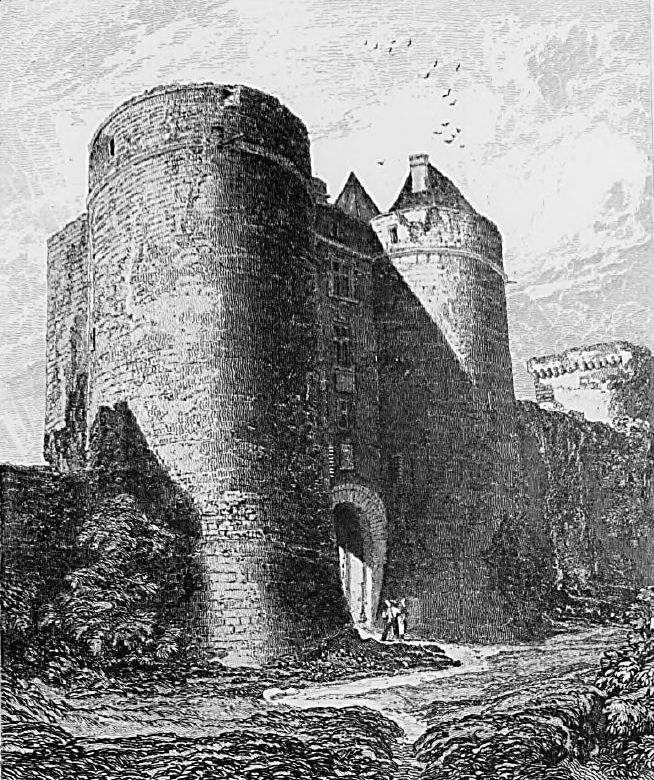|
Ralph De Somery I
Ralph de Somery I inherited the barony of Dudley on the death of his uncle, Gervase Paganell, in 1194 although he did not get full ownership of the lands until the death of his mother in 1208. Ralph swapped land that he owned at Wolverhampton with King John, obtaining estates at Kingswinford which proved very valuable to later Lords of Dudley during the Industrial Age. He had three sons and died in 1210. Life Ralph de Somery was the son of John de Somery and his wife Hawise, sister and heir of Gervase Paganell, baron of Dudley. When his uncle Gervase died in 1194, Ralph inherited the barony although not all the lands that accompanied the title, as some were inherited by his mother. Around 1205, Ralph swapped land he held at Wolverhampton with King John, obtaining estates at Kingswinford, including Pensnett Chase. The Chase was used by later Lords of Dudley as a hunting ground and much later proved to be a rich source of coal and other minerals. Ralph married Margaret le Gras, niec ... [...More Info...] [...Related Items...] OR: [Wikipedia] [Google] [Baidu] |
Gervase Paganell
Gervase Paganell inherited the feudal barony of Dudley (which included Dudley Castle) around the year 1150. However, after rebelling against King Henry II, his castle was demolished. Gervase founded the Cluniac Priory of St James in Dudley and probably founded the Church of St Thomas in Dudley. He died in 1194. The Paganells of Dudley Castle The first of the family of Paganell to hold Dudley Castle and the barony of Dudley was Fulke Paganell around the year of 1100. Dudley Castle was originally a wooden Norman castle, built by Ansculf de Picquigny, a follower of William the Conqueror. At the time of the Domesday survey in 1086, the castle was in the possession of his son William fitz Ansculf together with manors in the Home counties and the English Midlands, which were rewards for services to the Conqueror. Dudley Castle was the caput of the feudal barony. The Paganell family had origins in Normandy, where Fulke's father William was Lord of Moutiers Hubert. It is not clear how F ... [...More Info...] [...Related Items...] OR: [Wikipedia] [Google] [Baidu] |
Dudley
Dudley is a large market town and administrative centre in the county of West Midlands, England, southeast of Wolverhampton and northwest of Birmingham. Historically an exclave of Worcestershire, the town is the administrative centre of the Metropolitan Borough of Dudley; in 2011 it had a population of 79,379. The Metropolitan Borough, which includes the towns of Stourbridge and Halesowen, had a population of 312,900. In 2014 the borough council named Dudley as the capital of the Black Country. Originally a market town, Dudley was one of the birthplaces of the Industrial Revolution and grew into an industrial centre in the 19th century with its iron, coal, and limestone industries before their decline and the relocation of its commercial centre to the nearby Merry Hill Shopping Centre in the 1980s. Tourist attractions include Dudley Zoo and Castle, the 12th century priory ruins, and the Black Country Living Museum. History Early history Dudley has a history dating back ... [...More Info...] [...Related Items...] OR: [Wikipedia] [Google] [Baidu] |
Pensnett Chase
Pensnett Chase was a wooded area of land owned by the Lords of Dudley Castle in the parishes of Kingswinford and Dudley (or mainly so). As a chase, it was originally used by them to hunt game in although it was also used as common land by local people. At some periods it was regarded as extending into Gornal, West Midlands, Gornal and including Baggeridge Country Park, Baggeridge Wood at one end and perhaps Cradley Heath at the other. By the 17th century the ancient woodlands had largely been cleared. In the early modern period, the Dudley portion of the Chase came to be known as Dudley Wood and the name was largely reserved for the portion in Kingswinford. This was in the 18th century an extensive area of commonland which was inclosure, inclosed in the late 18th century, with the mines reserved to the Earl of Dudley, lord of the manor. It extended from the area now called Pensnett through Brierley Hill to Quarry Bank. History Pensnett Chase, a wooded area to the south and w ... [...More Info...] [...Related Items...] OR: [Wikipedia] [Google] [Baidu] |
William Marshal, 1st Earl Of Pembroke
William Marshal, 1st Earl of Pembroke (1146 or 1147 – 14 May 1219), also called William the Marshal (Norman French: ', French: '), was an Anglo-Norman soldier and statesman. He served five English kings— Henry II, his sons the "Young King" Henry, Richard I, and John, and finally John's son Henry III. Knighted in 1166, he spent his younger years as a knight errant and a successful tournament competitor; Stephen Langton eulogised him as the "best knight that ever lived." In 1189, he became the ''de facto'' earl of Pembroke through his marriage to Isabel de Clare, though the title of earl was not officially granted until 1199 during the second creation of the Pembroke earldom. In 1216, he was appointed protector for the nine-year-old Henry III, and regent of the kingdom. Before him, his father's family held a hereditary title of Marshal to the king, which by his father's time had become recognised as a chief or master Marshalcy, involving management over other Marshals and ... [...More Info...] [...Related Items...] OR: [Wikipedia] [Google] [Baidu] |
Roger De Somery II
Roger de Somery inherited the feudal barony of Dudley in 1235. In 1262, Roger started the re-fortification of Dudley Castle, which had been slighted by order of King Henry II after a rebellion in 1173-1174. Roger married twice and died in 1272. Biography Roger de Somery was the son of Ralph de Somery (d 1210) and Margaret le Gras (liv 1247), feudal baron of Dudley. He inherited the barony in 1235. In 1253, the king sent Roger on an expedition to Gascony to help quell a rebellion. In 1262, Roger began to re-fortify Dudley Castle, which had been slighted by order of King Henry II after the revolt of 1173–74 Rebellion, uprising, or insurrection is a refusal of obedience or order. It refers to the open resistance against the orders of an established authority. A rebellion originates from a sentiment of indignation and disapproval of a situation and .... However, as he did not have a licence from the king to rebuild the castle, he was ordered to stop the construction work. A l ... [...More Info...] [...Related Items...] OR: [Wikipedia] [Google] [Baidu] |
1210 Deaths
1 (one, unit, unity) is a number representing a single or the only entity. 1 is also a numerical digit and represents a single unit of counting or measurement. For example, a line segment of ''unit length'' is a line segment of length 1. In conventions of sign where zero is considered neither positive nor negative, 1 is the first and smallest positive integer. It is also sometimes considered the first of the infinite sequence of natural numbers, followed by 2, although by other definitions 1 is the second natural number, following 0. The fundamental mathematical property of 1 is to be a multiplicative identity, meaning that any number multiplied by 1 equals the same number. Most if not all properties of 1 can be deduced from this. In advanced mathematics, a multiplicative identity is often denoted 1, even if it is not a number. 1 is by convention not considered a prime number; this was not universally accepted until the mid-20th century. Additionally, 1 is the s ... [...More Info...] [...Related Items...] OR: [Wikipedia] [Google] [Baidu] |
.jpg)



